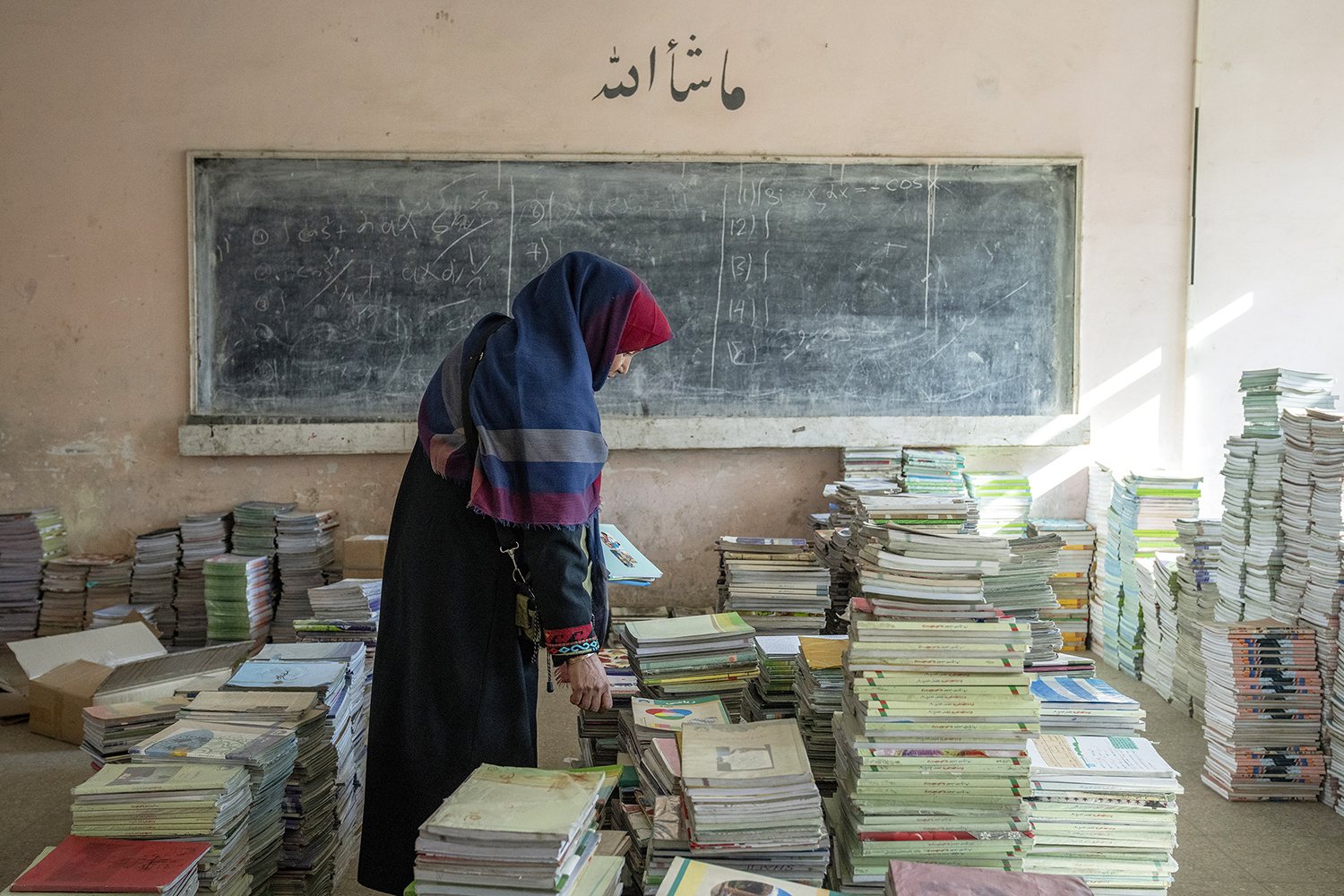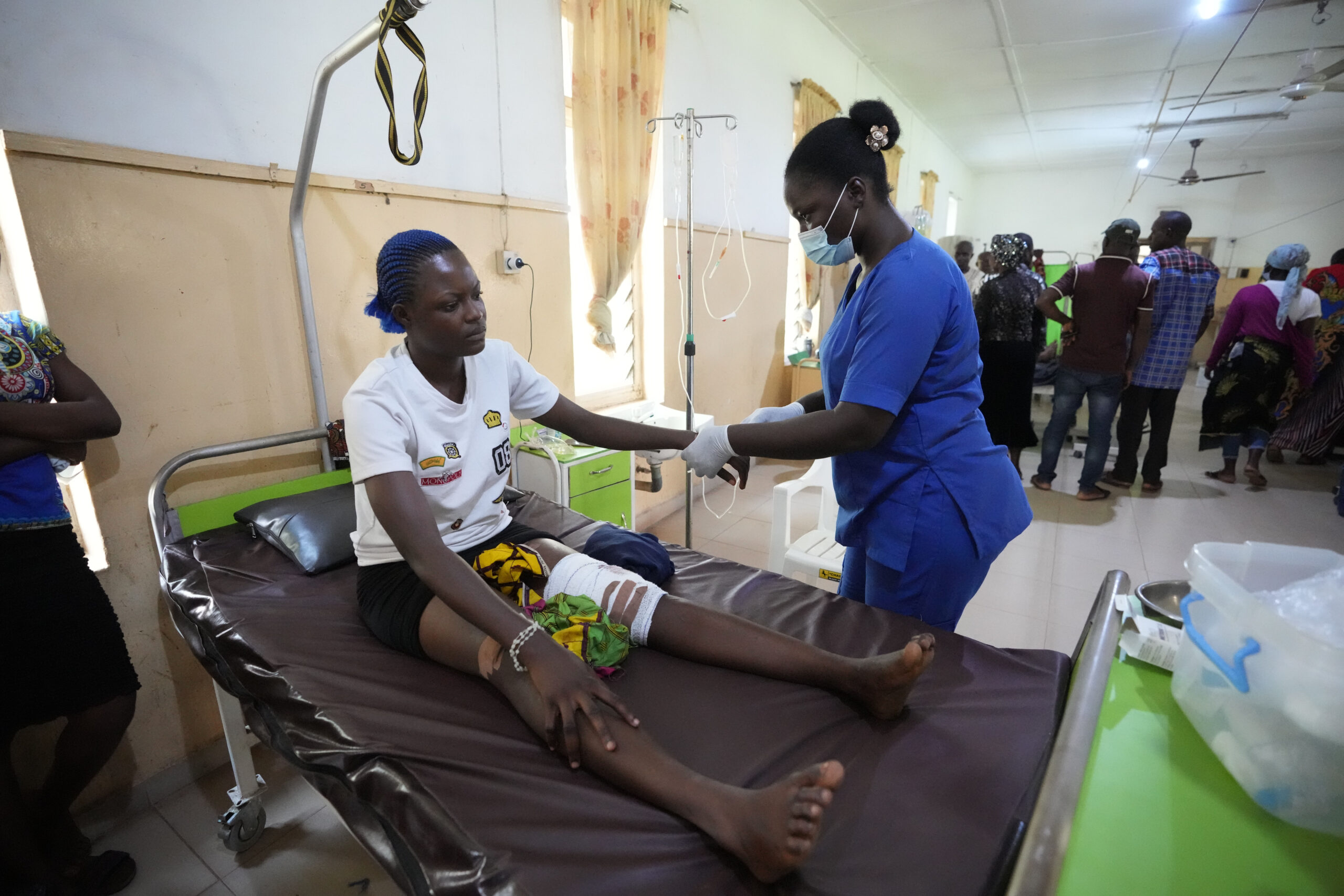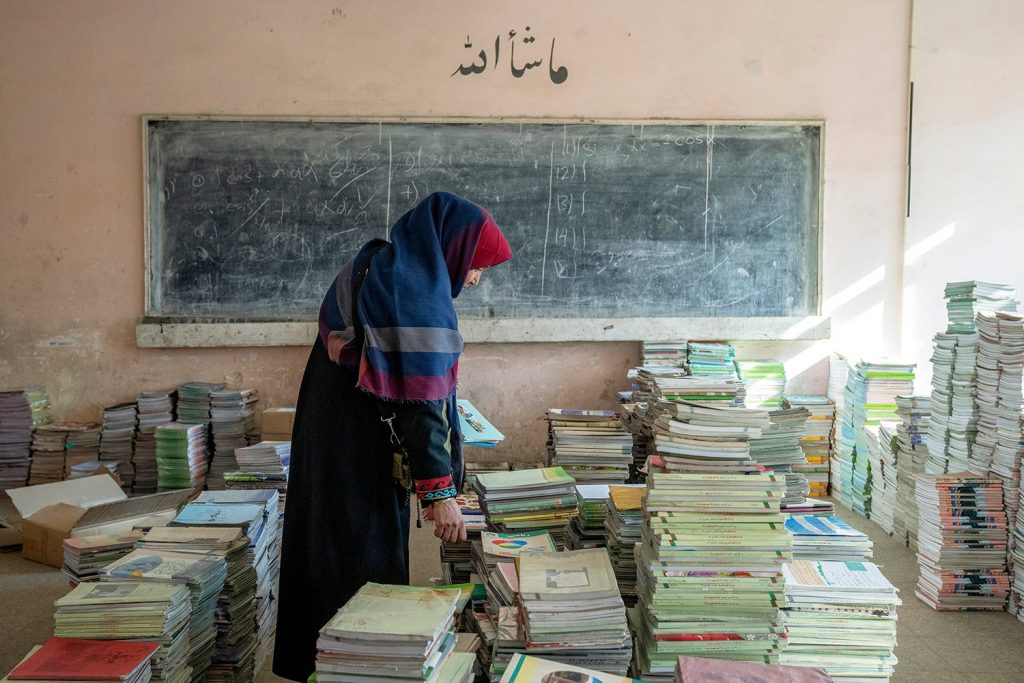
(RNS) — Over the past year, two of the world’s most brutal regimes, Iran and the Afghan Taliban, have illustrated how denying religious freedom and women’s rights go hand-in-insidious-hand.
The Iranian government has reserved a special brand of tyranny for women and girls. Thousands have been imprisoned, abused (including sexual violence) and in some cases killed for protesting the brutal murder in police custody of Mahsa Zhina Amini for an “improper” headscarf.
The Taliban’s 2021 takeover of Afghanistan led to a mass exodus of religious minorities among many others. Widespread violence against those remaining revealed — despite assurances to the contrary — the misogynistic face of the regime, which has barred women and girls from public life, including education, employment and even amusement parks.
Both regimes committed these violations against women in their countries, in gross violation of international standards, according to their draconian interpretations of religious law. And both continued to deny the rights of religious minorities, nonreligious people and all whose deepest convictions may differ from official doctrines.
As the chair and vice chair of the U.S. Commission on International Religious Freedom, we firmly denounce all the violations of religious freedom against the people of Iran and Afghanistan as well as the 26 other countries named in our 2023 annual report. Some of those 28 countries — prominently, Pakistan and Saudi Arabia — follow the example of Iran and Afghanistan by enforcing a particular interpretation of religion. Others, such as China, North Korea, Vietnam, Tajikistan and Eritrea, seek to control the religious lives of their people from cradle to grave, often in outright contempt for faith itself.
Amanah Nashenas, an Afghan teacher, collects books in a school in Kabul, Afghanistan, Dec. 22, 2022. The country’s Taliban rulers earlier in the week ordered women nationwide to stop attending private and public universities effective immediately and until further notice. They also banned girls from middle school and high school, barred women from most fields of employment and ordered them to wear head-to-toe clothing in public. Women are also banned from parks and gyms. (AP Photo/Ebrahim Noroozi)
Still others, such as Burma, India and Russia, promote a religious majoritarian nationalism that often leads to abuses against religious minorities.
In all these contexts, USCIRF sees a concerning trend of violations specifically targeted at and affecting women, including Uyghur Muslim women subjected to forced abortions, birth control and sterilization by China, and Christian and Yazidi girls held captive by terrorist groups in Nigeria or Iraq.
In accordance with USCIRF’s legislative mandate, we recommend this year that the U.S. Department of State name 17 nations as countries of particular concern, or CPCs — the worst of the worst religious freedom abusers, which perpetrate or tolerate particularly severe violations — and 11 to its Special Watch List for perpetrating or tolerating severe violations.
Among these countries, two in the Americas, Cuba and Nicaragua, dramatically worsened in 2022, leading USCIRF to recommend them as countries of particular concern for the first time. We also newly recommend naming Sri Lanka to the Special Watch List, as the special status granted to Buddhism has increasingly translated into problematic prosecutions, widespread discrimination and land seizures that target Muslims and Hindus in particular.
Alongside these recommendations, we continue to underline the importance of the State Department imposing meaningful consequences on violator governments when it names its CPCs — and to stop issuing waivers based on other U.S. interests that allow them to avoid penalties.
We are especially alarmed by conditions in Nigeria — Africa’s most populous country — and reiterate the need for the State Department to again designate it as a country of particular concern and name a special envoy for Nigeria and the Lake Chad Basin. Religious freedom conditions there remain atrocious, with violent nonstate actors, the enforcement of state-level religious laws and an ineffectual central government leading to extreme suffering for people of faith and nonbelievers alike.

A victim of an attack at St. Francis Catholic Church receives treatment at St. Louis Catholic Hospital in Owo, Nigeria, June 6, 2022. More than 40 people were killed when gunmen opened fire and detonated explosives at the church. (AP Photo/Sunday Alamba)
We likewise continue to urge a CPC designation for India, where anti-conversion and other discriminatory laws are spreading in many states. The national government has also sought to silence dissenting voices — particularly of religious minorities and those advocating for them.
Alongside our recommendations to the State Department, we urge members of Congress and the relevant congressional committees to heighten their engagement on issues of international religious freedom through hearings, legislation and congressional delegation trips abroad. Violations are early warning signs for larger human rights abuses and the rise of authoritarianism and must not be ignored.
The influence of egregious religious freedom violators beyond their borders is also escalating. China continues to pressure other nations, including majority-Muslim countries, to repatriate Uyghur and other Turkic Muslims to face its genocidal policies against them. Iran’s targeting of those opposing mandatory hijab laws and other religious freedom restrictions has even reached into the United States.
Russia has also extended its repression of religious freedom and dissent beyond its own territory, into the parts of Ukraine it has invaded and occupied, both since 2014 into Crimea and with the launch of its full-scale invasion last year.
Despite these significant and worsening challenges, USCIRF will continue to stand firm against governments that deny, control or ignore the essential right of religious freedom for all people, everywhere. It is our hope that like-minded partners around the world — governments and civil society actors, people of all faiths and none, and all those who treasure the freedom of religion or belief — will join us in calling to account such behavior and building global momentum for human freedom, dignity and justice.
(Nury Turkel, a co-founder of the Uyghur Human Rights Project, is chair of the U.S. Commission on International Religious Freedom. Rabbi Abraham Cooper, associate dean and director of global social action for the Simon Wiesenthal Center, is vice chair of the commission. The views expressed in this commentary do not necessarily reflect those of Religion News Service.)

